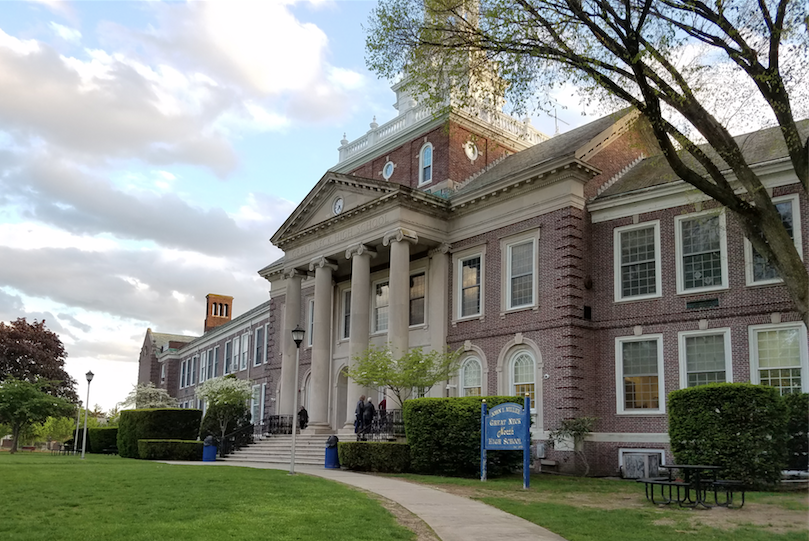An individual at Great Neck North High School was diagnosed with meningococcal disease, according to the Nassau County Department of Health and a letter from the superintendent of schools.
According to the New York State Department of Health, meningococcal disease – a bacterial infection – “strikes quickly” and can lead to “serious blood infections” and complications, including death. Among its listed symptoms are fever, headaches, nausea, rashes, sensitivity to light, and inflammation of the brain and spinal cord.
But, officials said it would take very close contact with the infected person to potentially contract it.
“While there is no need to panic, the Nassau County Department of Health requires that you be notified about this situation,” Great Neck Superintendent of Schools Teresa Prendergast said in a letter to parents, staff and guardians at North High School. “Anyone who has been identified as having been in contact with this individual has already received a separate notification to contact their physician immediately to receive prophylactic treatment.”
The condition of the patient and his or her identity were not disclosed.
Mary Ellen Laurain, a spokeswoman for the Nassau County Department of Health, said the disease is rare – in part because of mandatory vaccinations of students in grades 7 to 12. Nassau County typically averages only one case per year. “We typically don’t see a lot of those cases,” Laurain said.
In the letter, Prendergast said individuals who have “shared food, drink, eating utensils, kissing, smoking or a beverage container, or exchanged nasal or oral secretions or had any similar exposure including close face to face contact for a combined total of four hours or more” with the person on May 14, 15, 16, 23, 24 or 25 “may be at risk.”
She recommended that anyone feeling they have symptoms should immediately contact a physician and note a diagnosis of meningococcal meningitis in the school.
“It’s not casual classroom contact,” Laurain added of how one would be infected. “It’s prolonged face-to-face exposure.”
Prendergast, Laurain and Colleen Bowler, a spokeswoman for the Great Neck Public Schools, said they could not disclose whether the individual is a student or staff member due to privacy laws.



